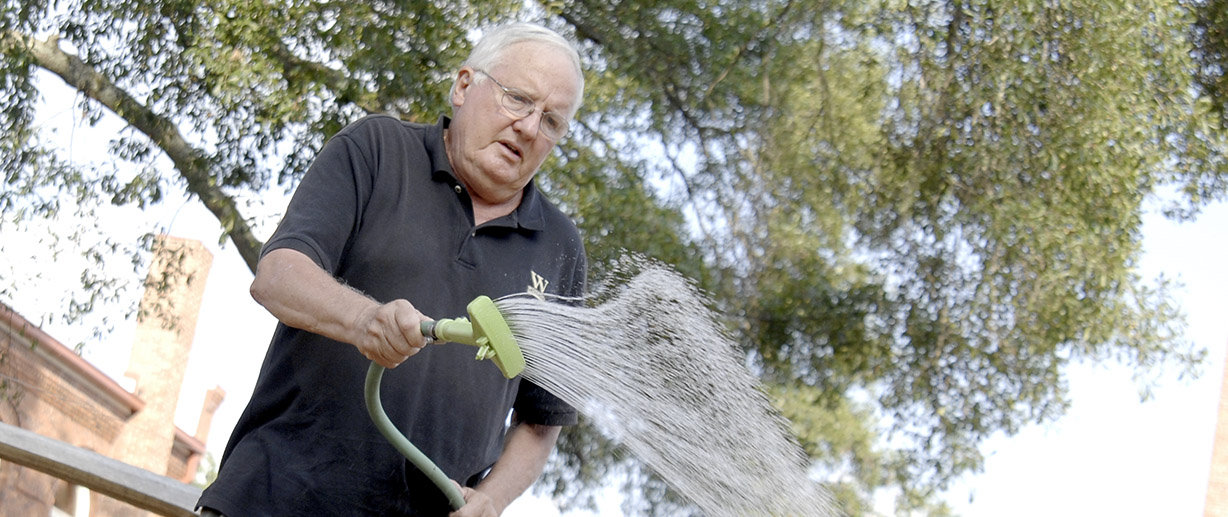Dr. Bobby Gene “B.G.” Stephens ’57 died on June 26, 2024, at his home in Spartanburg. He remained a character, even in his last interviews with the college, sharing his experiences helping the college develop the first Interim and navigate desegregation, co-education and a strategic vision that led to a campus technology network and the Franklin W. Olin Building.
As academic dean of the college from 1972 until 1980, his name is on every diploma awarded during that period, something he considered a great honor. Prior to that, he was a dynamic professor of chemistry at Wofford. After his tenure as dean, he served as president of MacMurray College in Jacksonville, Illinois, before returning to Wofford in 1986 as vice president of technology, retiring in 2000.
President Emeritus Joe Lesesne once said that there was not enough room in a newspaper to tell the story of the “old rascal. … He was a gifted teacher and a researcher … and an architect of the college’s first technological systems, serving as a resource in that area for faculty and administrators.”
A paper Stephens wrote in 1975 envisioned the technology used in classrooms today. He conceived and developed the Summer Institute for Gifted Students at Wofford among other innovative programs.
“He was always the member of the staff who conceived programs and implemented them,” says Dr. Dan Maultsby ’65 in an article in the Spartanburg Herald-Journal. Maultsby succeeded Stephens as dean of the college. “B.G. was way ahead of the rest of us. He really had the vision and provided the leadership for programs and technology.”
Stephens was passionate about the Glendale community where he was born and raised. After graduating from Wofford, he was commissioned into the U.S. Army and served as a cryptanalyst and intelligence analyst at the National Security Agency. He went on to earn M.S. and Ph.D. degrees in analytical chemistry from Clemson University. Stephens was awarded honorary degrees from MacMurray College and Wofford. He was elected to Phi Beta Kappa, received the Jefferson Award of the South Carolina Academy of Science for meritorious chemistry research and received Wofford's Distinguished Service Award. He published papers about his chemistry research in international refereed journals and made presentations at international conferences. His chemical research resulted in the development of the premier primary standard for EDTA, simple methods for the determination of sulfur dioxide, and the discovery of the outstanding solvent and extraction properties of an essentially non-toxic organic liquid.
Stephens grew up in Glendale Methodist Church and was a member of Trinity United Methodist Church where he was an adult Sunday school teacher. He was an active volunteer in the restoration and renaissance of the former textile village of Glendale. His capstone project was facilitating the restoration of the Old Iron Bridge in Glendale. He served as chair of the State Library Board, the research committee of the consortium of South Carolina Independent Colleges and Universities, the Western Carolinas Section of the American Chemical Society and the Piedmont Area Section of Phi Beta Kappa.
He attributed his success to his wife, Sandra, his mother, Bertha, and his grandmother, Lula Belle, and he loved his children and grandchildren very much.
Gifts in his memory may be made to the environmental studies program at Wofford College.
